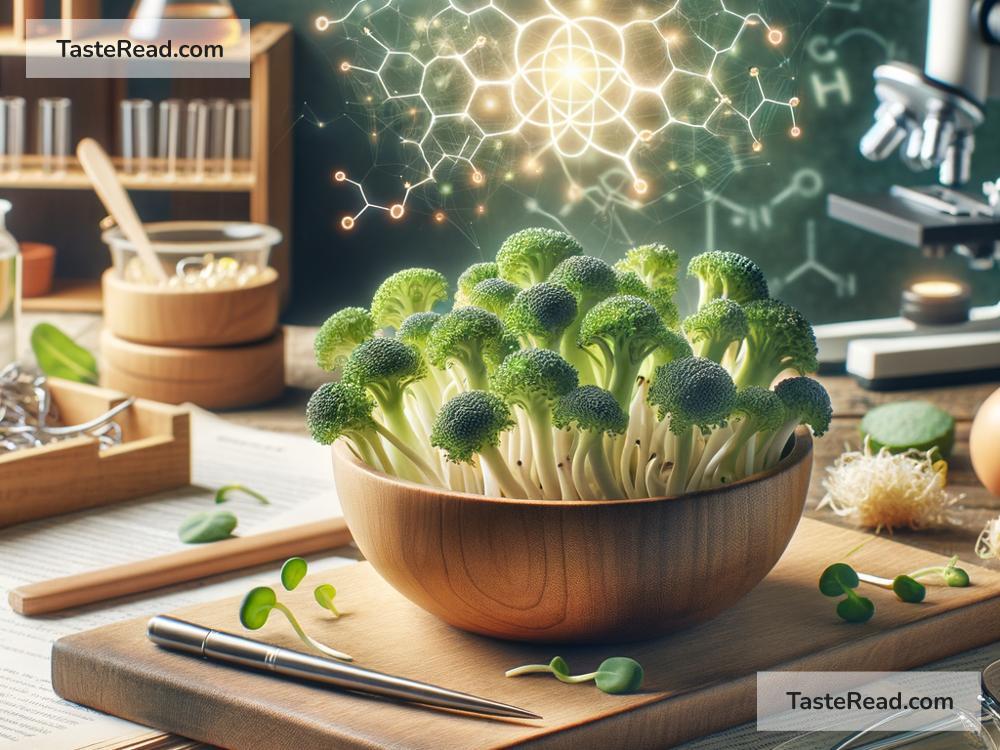The Surprising Uses of Broccoli Sprouts in Cancer Research
Broccoli sprouts may look like tiny, delicate plants, but scientists are finding big benefits hidden in these small greens. While broccoli often gets attention for being a healthy vegetable, its sprouts—young broccoli plants that are only a few days old—are proving valuable in the fight against cancer. Let’s explore how broccoli sprouts are being used in cancer research and why they may hold promise for the future.
What Are Broccoli Sprouts?
Broccoli sprouts are the baby version of the broccoli plant. They resemble alfalfa sprouts in appearance and taste slightly peppery. You may have seen them in salads or sandwiches, but they are not just food; they are becoming an important subject in medical research.
The power of broccoli sprouts lies in a compound called sulforaphane. Sulforaphane is a naturally occurring chemical that researchers believe can help prevent and even treat certain types of cancer. This compound is found in higher concentrations in broccoli sprouts than in mature broccoli, making these tiny plants an incredible source of nutrition and potential medicine.
How Do Broccoli Sprouts Fight Cancer?
Cancer happens when cells grow uncontrollably, forming tumors that can spread throughout the body. There are many causes of cancer, such as genetic factors, poor diet, smoking, and exposure to harmful chemicals. Researchers are always looking for natural ways to reduce cancer risk and improve treatment, and broccoli sprouts are becoming a key ingredient in this search.
Here are some ways broccoli sprouts are believed to help fight cancer:
-
Preventing Cancer Before It Starts
Sulforaphane in broccoli sprouts may prevent healthy cells from becoming cancerous. It does this by boosting the body’s production of enzymes that remove toxins. These toxins can damage DNA and lead to cancer. By cleaning the body’s system, sulforaphane helps lower the chances of developing cancer. -
Targeting Cancer Cells
Studies have shown that sulforaphane can target cancer cells without harming healthy cells. This is important because most cancer treatments, like chemotherapy, can damage both cancerous and healthy cells, causing unpleasant side effects. Sulforaphane may one day become a gentler way to treat cancer. -
Reducing Tumor Growth
Sulforaphane has been studied for its ability to slow down the growth of tumors. It works by interrupting the processes that cancer cells need to multiply. Scientists are excited about using broccoli sprouts as part of cancer therapies because this compound shows promise in controlling tumor development. -
Improving the Effectiveness of Traditional Treatments
Sulforaphane may also improve how well chemotherapy and radiation treatments work. When combined with these traditional cancer treatments, it could make cancer cells more vulnerable while protecting healthy cells. This dual action is an exciting focus for researchers.
What Does the Research Say?
Many studies are showing that broccoli sprouts could help fight cancer, though most of this research is still in the early stages. Let’s take a look at some examples:
-
Animal Studies
Research involving mice has shown that sulforaphane can reduce the size of tumors and prevent cancer from spreading. Although these findings are promising, it is important to remember that what works in animals does not always translate to humans. -
Human Studies
In recent human studies, people who ate broccoli sprouts showed higher levels of protective enzymes in their bodies. Some trials have found that eating broccoli sprouts may reduce certain markers that are linked to cancer development, like inflammation or oxidative stress. While more research is needed to prove their effectiveness, these early findings are encouraging.
One study even explored the benefits of broccoli sprout extract for patients with breast cancer. The extract showed potential in slowing the growth of cancer cells. Researchers are now investigating whether broccoli sprouts could be added to cancer treatment plans for better outcomes.
How Can You Add Broccoli Sprouts to Your Diet?
Even though the use of broccoli sprouts in cancer treatment is still being studied, eating them as part of your diet is a simple way to improve your health. Sulforaphane is not only linked to cancer prevention—it may also protect against other diseases, such as heart disease and diabetes.
The best way to enjoy broccoli sprouts is to eat them raw. Cooking can reduce their sulforaphane content. You can sprinkle them on salads, add them to sandwiches, or blend them into smoothies. If you want to try growing them at home, they are easy to sprout with just a jar, water, and seeds.
The Future of Broccoli Sprouts in Medicine
Scientists are optimistic about the role broccoli sprouts could play in cancer research and treatment. While they are not a cure for cancer, they may become a helpful tool in preventing and managing the disease. Future studies will determine exactly how sulforaphane works, how much should be consumed, and what combinations are most effective.
In the meantime, broccoli sprouts remain a healthy addition to your plate and a hopeful area of medical research. Sometimes the most surprising solutions come from nature—tiny sprouts may hold the key to big breakthroughs in the fight against cancer.
So, the next time you spot broccoli sprouts at the grocery store, consider giving them a try. They might be more than just a tasty topping—they could be a small but powerful contribution to your health and the future of cancer treatment.


